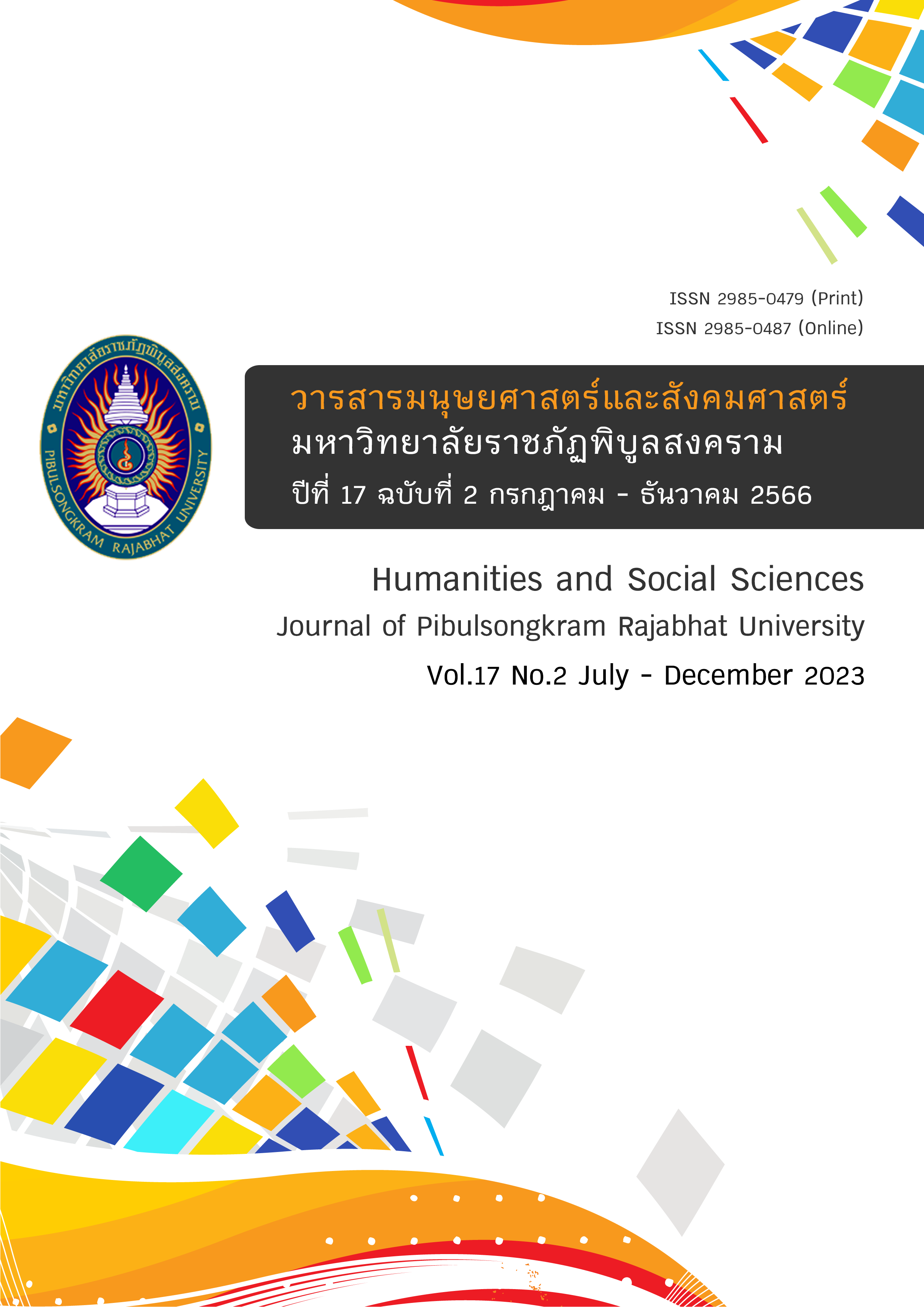Specific Grant Allocation Policy for Local Authorities and Fiscal Disparity: A Case Study of Chonburi Province
DOI:
https://doi.org/10.14456/psruhss.2023.57Keywords:
Specific grant allocation, Local authorities, Political changes, Fiscal disparity, Chonburi provinceAbstract
This research aimed to study the government’s specific grant allocation policy to local government organizations (LGOs) of Thailand during 2001-2018 and fiscal disparity of LGOs in Chonburi province during 2010-2017. It employed the mixed method research. The quantitative research was a secondary data analysis of grants for 7,848 and 97 local authorities in the country and Chonburi province, respectively. The qualitative research consisted of in-depth interviews with 9 persons involved in allocation and local administrators at all levels by content analysis and interpretation. It was found that such policy fluctuated according to political changes. Most governments maintained a relatively constant amount of by-authority general grants. The size of specific grants varied inversely proportional to purposive general grants, and missions were alternated between them, reflecting the level of political role in governing the policy. The phenomenon affected the income of Chonburi localities. Wealthy municipalities earned more grant than the poor, however the situation among SAOs was the opposite. The disparity of all grants among municipalities were higher than those of SAOs. In particular, the disparity in specific grants over several years were very high because many localities were not supported. It should therefore increase the total income and proportion of by-authority general grants, reduce specific grants and use as needed. Projects which LGOs can get comprehensively should be developed and additional budgets should be provided to the government projects.
References
จรัส สุวรรณมาลา. (2558). การพัฒนาเศรษฐกิจท้องถิ่นบนเส้นทางการกระจายอำนาจของไทย. ดุลอำนาจในการเมืองการปกครองไทย. KPI Yearbook No.6. กรุงเทพฯ: สถาบันพระปกเกล้า.
ดิเรก ปัทมสิริวัฒน์, และดารุณี พุ่มแก้ว. (2560). เงินอุดหนุนเฉพาะกิจและความเหลื่อมล้ำการคลังท้องถิ่นในประเทศไทย. วารสารสถาบันพระปกเกล้า, 15(1), 118-138.
ปิยากร หวังมหาพร. (2557). รายได้องค์กรปกครองส่วนท้องถิ่นไทยกับการบริหารโครงการด้านสังคม: อิสระของท้องถิ่นหรือตัวแทนรัฐ?. วารสารช่อพยอม, 25(1), 93–108.
วิสุทธิณี ธานีรัตน์, และมนตรี โสคติยานุรักษ์. (2561). ปัจจัยที่ส่งผลต่อศักยภาพการคลังของเทศบาลในประเทศไทย. วารสารการบริหารปกครอง, 7(1), 602-623.
วีระศักดิ์ เครือเทพ, และคณะ. (2557). กรอบการประเมินนโยบายกระจายอำนาจ การถ่ายโอนภารกิจ บุคลากร การคลังและงบประมาณ และการปรับปรุงแก้ไขกฎหมาย (รายงานการวิจัย). กรุงเทพฯ: คณะรัฐศาสตร์ จุฬาลงกรณ์มหาวิทยาลัย.
วีระศักดิ์ เครือเทพ. (2554). ความเหลื่อมล้ำทางการคลังของเทศบาล: บทสำรวจปรากฏการณ์ “ใครมีเงินมากยิ่งได้มาก”. วารสารเศรษฐศาสตร์และนโยบายสาธารณะ คณะเศรษฐศาสตร์ มหาวิทยาลัยศรีนครินทรวิโรฒ, 2(4), 18–42.
สรณะ เทพเนาว์. (2559ก, 21 มกราคม). การวิ่งงบประมาณของ อปท.ที่ไม่มีใบเสร็จ ตอนที่ 1. ชุมชนคนท้องถิ่น. สืบค้น 18 กันยายน 2561, จาก: http://www.thailocalmeet.com/index.php?topic=61091.0
สรณะ เทพเนาว์. (2559ข, 4 กุมภาพันธ์). การวิ่งงบประมาณของ อปท.ที่ไม่มีใบเสร็จ ตอนที่ 2. การปฏิรูปประเทศไทย การปกครองท้องถิ่น. สืบค้น 18 กันยายน 2561, จาก: https://www.facebook.com/localreformthailand/
สำนักข่าวอิศรา. (2559). ตัดงบอุดหนุนป้องวิ่งเต้น-ห้ามประชานิยม! ป.ป.ช.ชงยาแรงปราบโกงท้องถิ่น. สำนักข่าว
อิศรา. สืบค้น 29 มีนาคม 2562, จาก: https://www.isranews.org/isranews-news/49943-thongtinnddzz.html.
Bahl, R. (2000). Intergovernmental Transfers in Developing and Transition Countries: Principles and Practice. Washington D.C.: The World Bank.
Bahl, R. W., & Linn, J. F. (1994). Fiscal Decentralization and Intergovernmental Transfers in Less Developed Countries. The Journal of Federalism, 24(1), 1–20.
Bird, R. (2000). Intergovernmental Fiscal Relations: Universal Principles, Local Applications. Working Paper no. 00-2, Georgia: Georgia State University.
Boadway, R. W. & Shah, A. (2007). Intergovernmental Fiscal Transfers: Principles and Practice. Washington, D.C.: The World Bank.
Borck R., & Owings, S. (2003). The political economy of intergovernmental grants. Regional Science and Urban Economics, 33(2), 139–156.
Faguet, J.-P. (2012). Introduction. In Decentralization and Popular Democracy: Governance from below in Bolivia. Ann Arbor: University of Michigan Press.
Martinez-Vazquez J., & Boex, J. (2001). The design of Equalization Grants: Theory and Applications. Andrew Young School of Policy Studies: Georgia State University.
Oates, W. E. (1972). Fiscal Federalism. New York: Harcourt, Brace, Jovanovich.
Wongpreedee A., & Sudhipongpracha, T. (2017). Fiscal Decentralization in Comparative Perspective: Analysis of the Intergovernmental Grant Systems in Indonesia and Thailand. Journal of Comparative Policy Analysis, 19(3), 245–261.
World Bank Institute. (2005). Introduction to poverty analysis. Washington, D.C.: World Bank Institute.
Downloads
Published
How to Cite
Issue
Section
License
Copyright (c) 2023 Humanities and Social Sciences Journal of Pibulsongkram Rajabhat University

This work is licensed under a Creative Commons Attribution-NonCommercial-NoDerivatives 4.0 International License.
Any articles or comments appearing in the Journal of Humanities and Social Sciences, Rajabhat Phibulsongkram University, are the intellectual property of the authors, and do not necessarily reflect the views of the editorial board. Published articles are copyrighted by the Journal of Humanities and Social Sciences, Rajabhat Phibulsongkram University.









